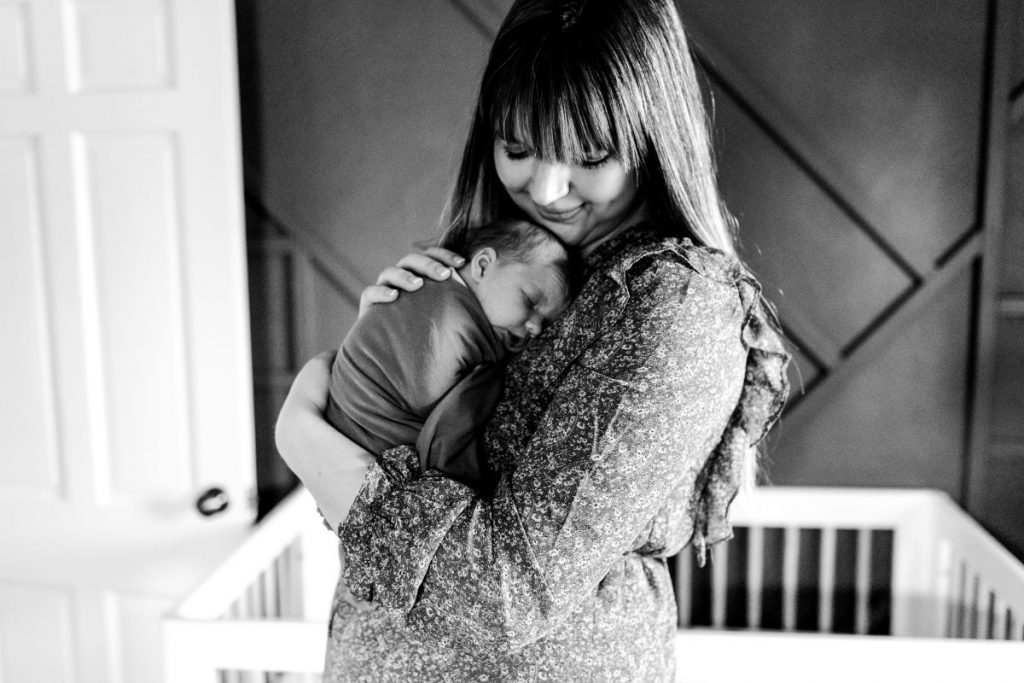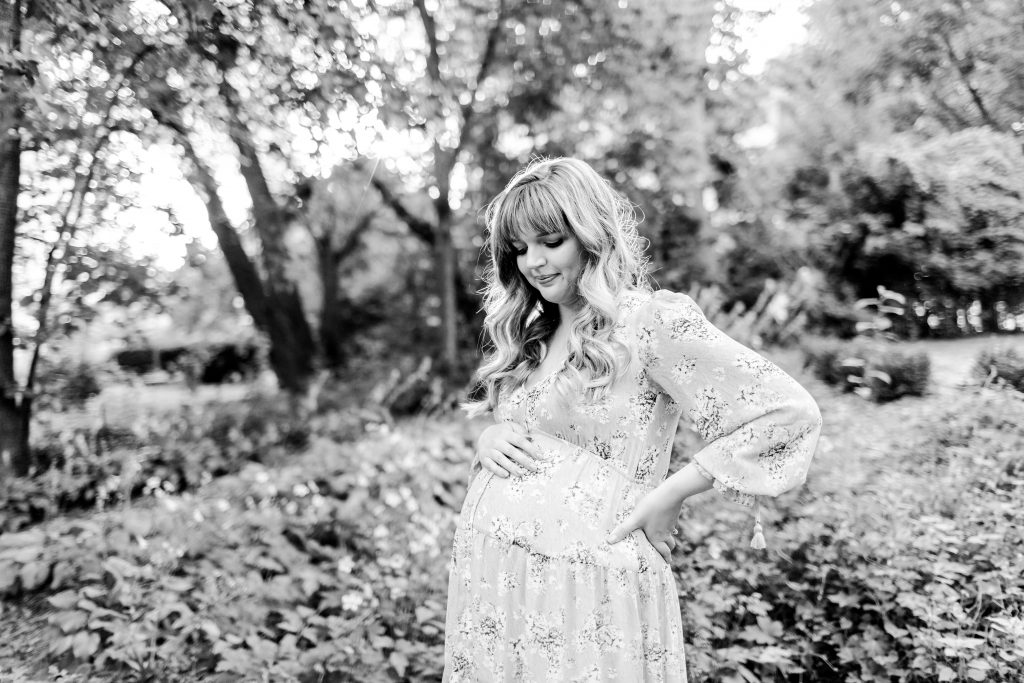
For more background information, see parts 1 and 2 of Jude’s birth story.
As I have previously written about, Jude was born critically anemic after losing a significant amount of blood in the womb. The source of this blood loss was a mystery that left all of us scratching our heads. I had not been bleeding at all prior to his birth and there was no blood found in my uterus during my C-section. The only symptom that something was wrong was decreased fetal movements the day that he was born.
Fetomaternal hemorrhage
A hematologist in the NICU spoke with us after Jude’s blood transfusion. To further investigate the cause of Jude’s anemia, he wanted to collect a sample of my blood. In that sample,105mL of Jude’s blood was found. This proved the hematologist’s suspicion that Jude had suffered a massive fetomaternal hemorrhage (FMH) in the womb. This is a condition in which the fetus essentially bleeds into the mother’s bloodstream through the placenta.
The placenta normally functions to remove waste products from the baby’s blood and pass nutrients and oxygen to the baby from the mom. But in this case, Jude’s blood was rapidly pouring into my bloodstream with no obvious cause as to why. My placenta was sent to Mayo Clinic to be looked at, but there were no obvious abnormalities found that could explain why the blood loss happened.
Severity of fetomaternal hemorrhage
The severity of FMH is based on the amount of fetal blood found in the mother’s blood stream. A blood loss of >20mL is considered massive. Jude lost 5 times that amount of blood. As a medical professional, I did a little research about his condition after his birth. I quickly realized how fortunate we were to get the outcome that we did. His condition is very rare, so there is not much literature about it other than a few case reports. When I read case reports with a similar amount of blood loss, my stomach churned reading about complications of neurological damage, neonatal death, and stillbirth.
I was hit very hard with the reality that not only had we lost our first baby, we very nearly lost our second.
another rare fluke
Providers reassured me that there was nothing I did to cause this. Much like Eden’s Trisomy 13 happened because of a “random” error at conception, this was considered to be a “fluke”. Doctors told me that there was nothing to indicate that it would happen again in a future pregnancy. However, if I were to get pregnant again I would still need to be looked at very closely because of my history. Any future pregnancy will automatically be classified as high risk and will involve frequent monitoring in the third trimester. The lack of medical explanation for Jude’s FMH has been deeply unsettling, because I don’t know how to prevent it from happening again.

When Jude was in the NICU and I was coming to terms with the severity of his condition, I asked a nurse practitioner point blank how he was still alive. She looked at me and simply said “someone really wanted him to be here.” In other words: only by a miracle. I wrestled with the concept of Jude being miraculously saved. I questioned why some babies are given miracles here on Earth, but others, like my daughter, are not healed until Heaven. The longer I walk with God, the less I feel like I understand Him, but I cling to the truth that His ways are higher than mine (Isaiah 55:8-9).
mental health struggles
After Jude’s birth, I struggled significantly with my mental health. I started to recognize debilitating post-traumatic stress disorder (PTSD) symptoms in myself. This was confusing for me, since Jude was home and healthy. I didn’t understand why I couldn’t just be grateful that he was okay and move on. Unfortunately, it has not been that simple. I have tried be gracious to myself in my healing process. Also, it is still valid to struggle with PTSD from an event even if there was a positive outcome. My PTSD (also likely combined with grief and pre-existing anxiety issues) presented itself in many different ways.
anxiety symptoms:
- Hypervigilance with taking care of Jude. I was constantly on guard for something terrible to happen when he was a newborn. I found myself obsessing over every detail of his care. If he did not have his Owlet monitor on while he was sleeping (recording his heart rate and oxygen saturation), I would literally sit and watch his chest rise and fall to make sure he was breathing.
- Difficulty sleeping due to intrusive thoughts and flashbacks. I could not stop picturing Jude after his birth, ghostly pale and not moving. When I did fall asleep, I would often wake up gasping for air, feeling like I was falling off a cliff.
- Anxiety attacks brought on by unexpected triggers. One time, a family member broke our no-kissing-rule and kissed Jude on the head. Afterwards, I grabbed him and took him into his nursery, shut and locked the door, and held him in his glider. I broke down crying and felt like I could not breathe.
interpersonal relationships:
- I felt highly agitated and irritable when interacting with people. I felt like no one understood or cared why, which only made me feel more angry and misunderstood. Eventually, this led to building resentment towards my loved ones.
- Feeling detached from Jude, Baylor, and close family members. When I spent time with people, I felt like I wasn’t even really there.
personal struggles:
- Self-blame and shame: Constantly going back to his birth and telling myself all the things I did wrong.
- Hopelessness about the future: I convinced myself I would never be able to have another living child. My body had failed me, and it would surely fail me again.
- Lack of joy during moments I had looked forward to for years. I remember introducing Jude to his family members and feeling nothing. I did not want to take pictures. I’m normally very sentimental, but whenever we had visitors, all I thought about was wishing they would leave. I realize this may sound harsh, but it was how I felt.
seeking out help
It did not take long for me to recognize that I needed professional help. For me, this included getting a prescription for Zoloft from my OB-gyn and finding a counselor. The medication helped me feel a little more regulated in my emotions. Once it started to work, I noticed improvements in my ability to cope. I was no longer obsessing over Jude’s care in an unhealthy way or having difficulty sleeping.
The task of finding a counselor felt very overwhelming, so Baylor volunteered to make phone calls to clinics on my behalf. Eventually, he found a counselor that was accepting new clients and I have been going to her for several months now. I have been doing a lot of work in therapy trying to repair my damaged relationships and heal from my trauma.
reframing my beliefs
My counselor asked me to identify the beliefs I held about Jude’s birth and the beliefs I hoped to adopt instead. This is like a way of measuring progress in my healing. For example, I have been working on shifting my belief that I am helpless to the belief that I did everything I could to help Jude.
One thing I have realized is that I view Jude’s birth as a close call, in which I came very close to losing him. The most comforting thing that someone has said to me is that it wasn’t a close call to God. God always knew He was going to save Jude. He wasn’t waiting idly by, biting His nails and hoping that I made it to the hospital in time.
God is sovereign
God has known the number of Jude’s earthly days since eternity past, just as He knew that Eden would be with us for 44 days (Psalm 139:16). As much as I struggle to understand, it brings me peace that God is sovereign over it all. In my human nature, I can easily get angry with God and ask why He would allow this to happen. We had already been through so much heartache, and surely we deserved an easy delivery. Even though God doesn’t promise us easy, it does bring me comfort that He is with us through it all. He oversees it all, the good and the bad.
For all I know, God was the one who alerted me to the change in Jude’s movements in the womb. Maybe He was the one who put it on my heart to go to the doctor that day. He placed critically important people in our path that facilitated Jude’s proper diagnosis and treatment. Jude has breath right now because God willed it to be there. I am grateful that God empowered me to save my son’s life.
As much as I still struggle to understand, I try to remind myself that God has a purpose for all things that I cannot possibly understand with my limited human perspective. This has not been easy, but is a continual process of surrender. I cannot be in control of all of the bad things that have happened or could happen in the future, but I rest in the promise that God will oversee all of it.
Leave a Reply